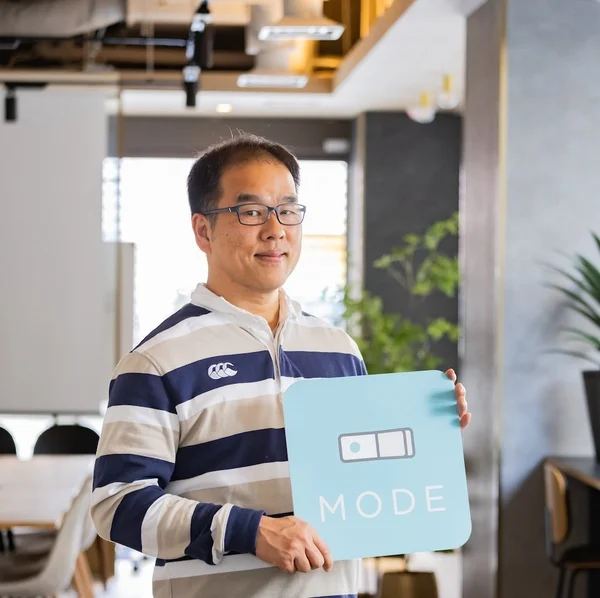Editor’s Note: This is a new Q&A series from StartUp Beat that features entrepreneurs who have successfully guided their startups (or multiple startups) to maturity. It is a complement to StartUp Beat’s coverage of new, early-stage startups and an effort to provide further insight into the fascinating experiences of tech entrepreneurs.
 Bio: Bob La Loggia is CEO of Appointment-Plus, a Scottsdale, Ariz.-based provider of online scheduling solutions for small and large businesses, Fortune 500 companies, colleges and universities, government agencies and other organizations. He has over 20 years of experience in the technology arena. Bob began his career at Accenture, a global management consulting, technology services and outsourcing company, where he gained valuable experience in systems development methodology and business operations. This experience prepared him for independent consulting roles with several Fortune 500 companies, including American Express and Honeywell. Bob started his first company in 1993, and has since been involved in four startups. As CEO, he has grown Appointment-Plus into the leading cloud-based scheduling software application used to book over 1.5 million appointments each month and over 65 million appointments since its inception. Bob graduated Magna Cum Laude from the University of Arizona with a bachelor’s degree in Management Information Systems. He earned his MBA from the University of Phoenix.
Bio: Bob La Loggia is CEO of Appointment-Plus, a Scottsdale, Ariz.-based provider of online scheduling solutions for small and large businesses, Fortune 500 companies, colleges and universities, government agencies and other organizations. He has over 20 years of experience in the technology arena. Bob began his career at Accenture, a global management consulting, technology services and outsourcing company, where he gained valuable experience in systems development methodology and business operations. This experience prepared him for independent consulting roles with several Fortune 500 companies, including American Express and Honeywell. Bob started his first company in 1993, and has since been involved in four startups. As CEO, he has grown Appointment-Plus into the leading cloud-based scheduling software application used to book over 1.5 million appointments each month and over 65 million appointments since its inception. Bob graduated Magna Cum Laude from the University of Arizona with a bachelor’s degree in Management Information Systems. He earned his MBA from the University of Phoenix.
SUB: What was your first entrepreneurial venture?
La Loggia: In 1993, after being on the road for five years, I quit Accenture to start my first venture. I had always had an interest in health and fitness, so I developed a daily fitness planner called The Pocket Personal Trainer. It was like a DayTimer, but included meal and workout planning and tracking.
Although I had learned a lot about business while with Accenture, I really had no idea how to start and grow a company. But, true to my nature, I dove in headfirst. After numerous failed attempts to get the product picked up by large retailers, I settled on mail order as the primary distribution channel.
Like many entrepreneurs, I was running on blind ambition and adrenaline. After three years, I found myself in over $150,000 of credit card debt and owed a family friend $10,000. I moved into my office, sold my truck, and took out the remaining money I had in my 401k. At 29-years old, I had nothing left.
After a couple more months, I thought I had my big breakthrough. NordicTrack was interested in using the planner as part of a package deal for their infomercials. I scraped up enough money to fly to Minneapolis to meet with them. The meeting went nowhere.
That night in a cheap hotel room outside of Minneapolis, my world came crashing down. I wept uncontrollably and couldn’t believe why I had put myself through over three years of almost nonstop work and immense stress. At that moment, I decided to close down the business.
SUB: What prompted you to start Appointment-Plus?
La Loggia: In 1999, I worked as the CTO for a dot-com startup called GlobeXPharma. It was a small startup funded by multi-millionaire John Kapoor. The company’s strategy was to disrupt the pharmaceutical distribution world using the power of the Internet.
At that time, there was a lot of media discussion about how having a brick-and-mortar presence could be important for dot-coms. So, we took a right turn and purchased a small pharmaceutical distribution company in Georgia. The strategy didn’t work and John pulled the plug on funding. We went out of business in 2001.
Between not having enough money in my first venture and having too much money with my dot-com startup, I was well equipped with a truckload of information on how not to run a company.
2001 was a horrible time for someone with my technology background to be looking for a job, so I started Appointment-Plus. Online services were already gaining steam. So, why not online appointment scheduling? It seemed to be an obvious use of the Internet.
SUB: Was there a point at which you knew Appointment-Plus would hit it big?
La Loggia: Well, we feel like the online appointment software industry is still very young. Although we’ve been very successful, we feel like we are just getting started. But, landing some key clients, such as a very large search engine company that shall remain nameless, gave us the confidence to continue to focus on growth. We knew we had the right people, the infrastructure, the culture and the scrappiness to be as successful as we chose to be.
SUB: Was there a “tipping point” (for lack of a better term) when Appointment-Plus really picked up steam and where it started growing exponentially?
La Loggia: Yes, there was a distinct time in our history that was a turning point for the organization. Several years ago, we were operating at a very profitable clip. But, we weren’t investing in the staff and the infrastructure to allow us to develop into a true powerhouse. I was running the company like a lifestyle business. We had 10 employees and not much interest in adding any more.
I then made the decision that we were going to try to own the online appointment scheduling industry instead of just being one of the players. The competitive nature I had built up over years of playing sports told me that resting on laurels always ends badly. Just like in basketball and football, there is always someone out there working harder than you are with the single objective of beating you. That thought consumed me and I became determined to work even harder to not let that happen.
I put together a growth roadmap and presented it to my team. They were immediately on board with the idea. That was two years ago. We now have 50 employees.
SUB: What were the first steps you took to establishing Appointment-Plus?
La Loggia: My systems development background with Accenture helped immensely with the initial planning phase for Appointment-Plus. But, the first step was to learn about the industry. So, I talked to pet groomers, hair stylists, massage therapists and anyone else I could find who took appointments. What I found was that appointment scheduling was really complex and it varied widely from industry to industry. I saw this problem as an opportunity and a barrier to entry.
To this day, the nuances involved in appointment scheduling from company to company and from industry to industry is still a huge barrier to entry for our industry. Whenever I see a new competitor enter the space, I always wonder if they realize what they are getting themselves into. Simplistic systems can only serve a very narrow range of clients. You have to have a lot of features and flexibility to effective serve multiple industries. We currently serve over 100 industries, with new ones we hadn’t thought of popping up all the time.
SUB: If you had it to do over again, what would the first concrete step to establishing Appointment-Plus have been?
La Loggia: I wrote the initial code base and I still do some programming, but if I had to do it all over again, I would have hired a top-tier developer right from the start. A well-rounded, experienced technician can build an infrastructure that makes future development and maintenance much easier. This can save countless hours as you grow and have multiple developers working on the code base.
SUB: What were the most significant obstacles to growing Appointment-Plus to maturity?
La Loggia: It’s unusual to say, but it wasn’t the business model, it wasn’t the competition, it wasn’t the product, it wasn’t the sales and it wasn’t the marketing. It was me. At about the time I made the decision to try to own the scheduling software industry, I also had an epiphany that I was holding the company back.
I realized that the company could only grow to the extent that I grew. I then committed myself to becoming the best CEO and best businessman I could become. I began getting up earlier and spending a couple hours reading every morning and I began listening to audiobooks whenever I drove anywhere.
To this day, I’m still passionate about learning everything I possibly can about business—leadership, management, psychology, negotiation, finance, customer service, sales, marketing, public speaking, strategy, and anything else I can squeeze in. I just finished reading Marc Benioff’s “Behind the Cloud” and the book prior to that was “Crossing the Chasm”. Next up is “The Wisdom of Crowds” by James Surowiecki.
SUB: What kinds of outside funding did you raise?
La Loggia: To this point, we have not raised money. Our growth is purely organic. We have a lot of interest from venture capital and private equity firms. I typically have at least two calls per week related to funding. I haven’t ruled out raising money, but I don’t think the time is right. I want to make sure every aspect of our business is scalable and repeatable. Right now, it’s not. We are three to six months away from having a more predictable model. At that time, raising money will definitely be an option I will consider.
SUB: What was the metric/milestone that indicated to you that Appointment-Plus had moved past startup stage?
La Loggia: I never, ever want to be out of the startup stage. I realize there are rules of thumb to define what is and is not a startup. To me, it’s an attitude. We’ve been in business for 10 years, and I still consider us a startup and always will as long as I’m CEO.
I’ve worked as a consultant to some pretty big, successful companies like Honeywell. I know what’s it’s like to have a comfortable job. I currently attend a Toastmasters club at American Express. So, I get to walk the h
alls of Amex every week. While they are a great company, they lack passion and urgency. The employees are way too comfortable. I never want us to be like that. I want us to be scrappy, edgy risk-takers who are always a little uncomfortable.
SUB: What were the most important lessons you learned about entrepreneurship while building Appointment-Plus?
La Loggia: You often hear that small companies go out of business because they ran out of money. That’s not true. They go out of business because the founder gave up. Perseverance is probably the most important trait for an entrepreneur. Every company has challenges both during the startup phase and for the entire life of the organization. Some entrepreneurs feed off those challenges and are energized by every obstacle they overcome. For others, the constant parade of problems gets to be too much and they eventually call it quits.
In addition to the four startups I’ve been a part of, I’ve known a lot of other entrepreneurs. Several traits I have seen in them, and I’ve seen in myself, are a level of naiveté and a feeling that nothing is as bad as it seems and nothing is as good as it seems.
Most entrepreneurs have no idea how hard it’s going to be and the sacrifices they are going to have to make. At first, it’s pure adrenaline. You have a great idea and excitedly go to work to make your dream a reality. But, after a while, the true realities start to set in. You aren’t growing as fast as you thought you would, you aren’t making as much money as you thought you would, and you are working more than you thought you would. When you realize that this undertaking is going to be the tortoise and not the hare, you have to accept some pretty harsh truths. If you fail and want to get back into the rat race, it may be harder than you think to get a job. And, if you continue to work this many hours, your health and your relationships will suffer. Although many people quit at this point, some emerge from the crowd and plow ahead with an unshakable commitment to success. Whether you hang it up or whether you throw caution to the wind and keep pressing on is a very personal decision and one that has no right answer. I respect anyone who takes a shot at making a dream come true.
I’ve learned countless lessons about business, strategy, and money. But, more than anything else, I’ve learned about myself. I’ve learned that having a solid ethical and non-material foundation can allow you to weather the toughest of situations and the hardest of decisions.








